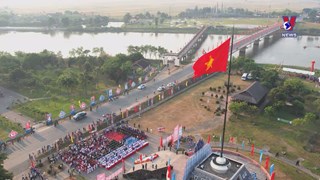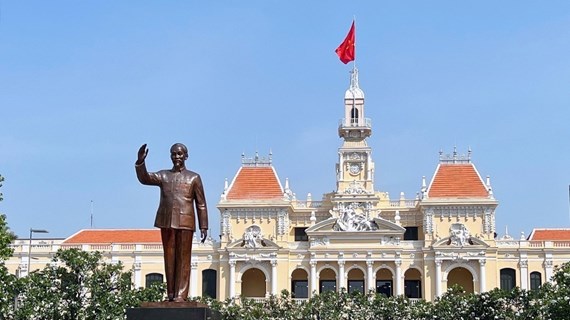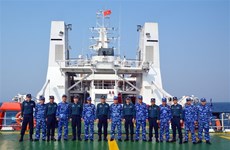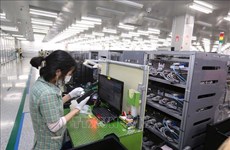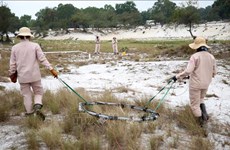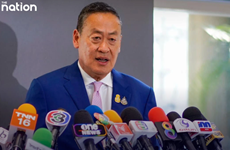US, Japan join with Vietnam to advance shared energy goals
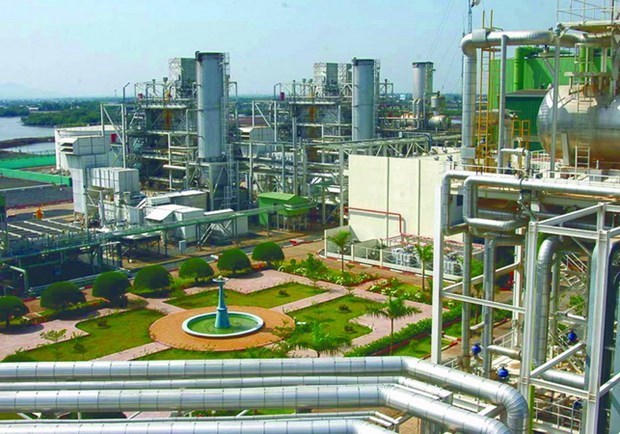 Illlustrative image (Photo: EVN)
Illlustrative image (Photo: EVN) Hanoi (VNA) - The Trilateral Vietnam-US-Japan Commercial Liquefied Natural Gas (LNG) Forum took place on December 2 to advance shared energy goals, the US Department of State announced on its website on December 3.
US Under Secretary of State for Economic Affairs Keith Krach, Assistant Secretary of State Francis Fannon, Japanese State Minister of Economy, Trade and Industry Kiyoshi Ejima, and Vietnamese Deputy Minister of Industry and Trade Dang Hoang An attended the event.
The event was held within the framework of the Japan – US strategic energy partnership that was launched in 2017 to promote a network of clean and secure energy sources and new technology markets to provide competitive alternatives to malign actors in the region.
The three countries agreed that regional growth is best achieved as a result of fair and transparent competition, including in energy markets for LNG and new fuel sources.
Krach emphasised the growing role of LNG in developing a network of clean and secure energy markets as the region prepares to diversify energy resources.
Fannon, for his part, highlighted the importance of LNG as a flexible energy platform that will enable Vietnam’s energy transition.
Vietnam’s leadership on clean energy goals and on private sector-led growth will continue as an example as it works with its neighbours to prepare for the mid-decade surge in energy demand. As Vietnam utilises newer and more efficient fuel sources and energy technologies, the US and Japan will provide continuing support, commercial innovation, and private sector investment, he said.
According to the US Department of State, the US and Japan commend Vietnam’s leadership in upholding commitments made at the Asia-Pacific Economic Cooperation (APEC) forum three years ago, including Vietnam’s enacting of legislation to spur private sector investment and support market-led growth. Vietnam has made great strides to diversify and invest in energy security for its future./.
